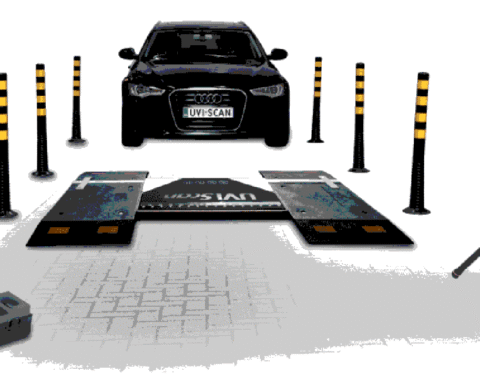Have you ever wondered if pursuing a career in retail management still makes sense in 2026? With all the buzz about online shopping and automation, it’s natural to ask whether traditional retail management roles are fading away or evolving into exciting opportunities.
Think of retail management like being the captain of a ship navigating both calm waters and stormy seas. The retail world is changing fast, but skilled managers are still the ones steering businesses toward success. Let’s explore what makes retail management relevant today, how it’s evolving, and what you should consider if you’re eyeing this path.
The Changing Face of Retail in 2026
Retail is no longer just about stores with shelves and cash registers. It’s a complex mix of physical locations, digital platforms, and customer experience strategies working together. Thanks to technology and shifting consumer habits, retail managers now wear many hats.
Imagine juggling running a store, managing inventory online, training staff, and understanding customer data. This is the new retail manager’s daily life.
Recent trends highlight:
- The rise of omnichannel retailing where customers shop online and offline seamlessly
- Emphasis on personalized shopping experiences driven by data
- Use of AI and automation in supply chains and customer service
- Growing importance of sustainability and ethical practices in retail
So, is retail management just surviving, or is it thriving with these changes? The answer leans strongly toward thriving, but with new skills in demand.
Why Retail Management Remains Important
Even with online shopping booming, physical stores are far from obsolete. Retailers are reinventing how they connect with customers through in-person experiences. This means they need capable managers who not only run daily operations flawlessly but also understand the bigger picture.
Managers are responsible for:
- Leading and motivating diverse teams
- Balancing customer service and sales targets
- Implementing new technology in-store
- Monitoring sales data to make quick decisions
- Handling supplier relationships and inventory control
This multifaceted role demands someone ready to adapt and learn. If you want to build these skills, a Retail Management course is a great starting point to gain knowledge about the latest trends and essential business practices.
New Skills for the Modern Retail Manager
Traditional retail skills like communication and sales are still vital. However, today’s managers also need to be tech-savvy and analytically minded. Here’s what is expected:
- Proficiency with digital tools used for inventory, customer engagement, and sales tracking
- Ability to analyze consumer data to tailor marketing and product placement
- Understanding e-commerce and how it integrates with physical stores
- Leadership skills to manage teams adapting to new technologies
- Knowledge of sustainability practices influencing consumer choices
Think of it as evolving from just managing a store to managing a brand and customer journey across multiple channels.
Career Opportunities in Retail Management
The retail industry continues to offer diverse roles, especially for those with management skills. Here are some promising career paths:
- Store Manager: Running daily operations and guiding staff performance
- Regional Manager: Overseeing multiple outlets and driving business growth
- E-commerce Manager: Bridging online and offline sales strategies
- Supply Chain Manager: Ensuring products reach stores timely and efficiently
- Customer Experience Manager: Enhancing satisfaction both in-person and online
These positions often come with increasing responsibility and better compensation. For those aiming high, an IIM Retail management course adds significant value, offering advanced knowledge and networking opportunities necessary for senior roles.
Challenges and How to Overcome Them
No career path is without challenges, and retail management is no exception. Some common hurdles include fast-paced change, staff turnover, and meeting high customer expectations.
How can you tackle these?
- Stay updated with industry trends by attending workshops or online courses
- Develop soft skills like empathy, problem-solving, and conflict resolution
- Embrace technology rather than resist it
- Prioritize continual learning and adaptability
Retail management can be demanding, but for those who prepare well, it offers a rewarding and dynamic career.
Why Consider a Retail Management Course?
Training is key to mastering the evolving retail landscape. A structured course can teach you:
- Fundamentals of retail operations and merchandising
- Modern marketing strategies tailored for retail
- Data analytics to understand shopping behavior
- Leadership and human resource management in retail contexts
- Insights into supply chain logistics and inventory control
Whether freshly out of college or transitioning careers, this foundation is crucial to stand out and succeed.
Is Retail Management a Future-Proof Career?
Retail may change, but the need for strong management does not. As physical stores blend with digital shopping experiences, managers who can navigate both worlds will always be in demand. Plus, retail gives you transferable skills useful in many other industries.
In 2026 and beyond, retail managers will increasingly shape customer experiences, operational efficiency, and brand success. For career growth and variety, it is a promising path.
Final Thoughts
Is a career in retail management worth it in 2026? Absolutely—if you’re ready to adapt, learn, and lead in a fast-changing environment.
By blending traditional skills with modern technology know-how, solid leadership, and strategic thinking, retail management remains a vibrant and rewarding career option.
For those serious about this path, investing in a course and considering advanced options, such as an IIM course, can open doors to exciting growth and opportunities.
Are you ready to captain the ship in the evolving world of retail?
Read More Gorod








